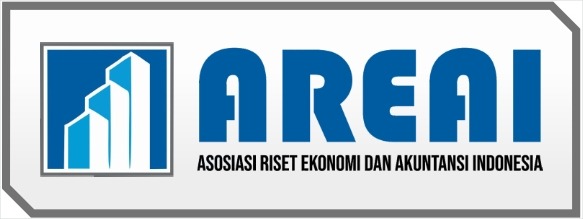Harmonizing Corporate Reporting: A Narrative Review on ESG, IR, and Global Investor Perceptions
DOI:
https://doi.org/10.61194/ijat.v3i2.713Keywords:
Value Relevance, Esg Reporting, Integrated Reporting, Stakeholder Engagement, Financial Disclosure, Global Reporting Standards, Investor TrustAbstract
The growing importance of non-financial disclosure in enhancing corporate transparency and investor trust has led to significant interest in ESG and Integrated Reporting (IR) frameworks. This narrative review aims to evaluate the extent to which ESG reporting, IR, stakeholder engagement, and global reporting standards impact the value relevance of corporate disclosures. Literature was sourced from Scopus, Web of Science, and Google Scholar, using systematic keyword combinations and inclusion criteria focused on peer-reviewed studies related to financial reporting, value relevance, and investor decision-making. Findings confirm that ESG and IR significantly increase investor confi dence by reducing information asymmetry, providing a more holistic understanding of corporate performance, and aligning long-term sustainability with financial outcomes. Stakeholder engagement and the use of global standards like IFRS and GRI further support consistency and comparability of disclosures across regions. However, challenges such as regulatory fragmentation, varying industry practices, and disparities in technological capacity hinder universal adoption. The study highlights the necessity for regulatory harmonization, increased financial literacy, and digital transformation as critical enablers for effective value communication. It calls for future research to deepen understanding of sectoral variations and technological integration in ESG monitoring. The review ultimately emphasizes the need for inclusive, standardized, and transparent reporting to strengthen global investor confidence and sustainable economic growth.
References
Adhariani, D. (2024). Surplus Indonesia: Tackling food waste through app. Emerald Emerging Markets Case Studies, 14(4), 1-25. https://doi.org/10.1108/eemcs-04-2024-0190 DOI: https://doi.org/10.1108/EEMCS-04-2024-0190
Aguiar, T., Haque, S., & McCann, L. (2024). Mapping accounting literature on climate finance: Identifying research gaps and reflections on future research. Accounting Research Journal, 37(3), 249-269. https://doi.org/10.1108/arj-06-2023-0162 DOI: https://doi.org/10.1108/ARJ-06-2023-0162
AbuRaya, R. (2023). The role of institutional and stakeholder interaction in integrated reporting policy development. Critical Perspectives on International Business, 20(1), 121-152. https://doi.org/10.1108/cpoib-12-2021-0110 DOI: https://doi.org/10.1108/cpoib-12-2021-0110
Aceituno, J., Ariza, L., & Sánchez, I. (2012). Explanatory factors of integrated sustainability and financial reporting. Business Strategy and the Environment, 23(1), 56-72. https://doi.org/10.1002/bse.1765 DOI: https://doi.org/10.1002/bse.1765
Anguiano-Santos, C. and Rodríguez‐Entrena, M. (2024). Sustainability reporting in focus: analysing Spanish transposition of the non-financial reporting European directive in the agri-food sector. Agricultural and Food Economics, 12(1). https://doi.org/10.1186/s40100-024-00303-z DOI: https://doi.org/10.1186/s40100-024-00303-z
Алексеева, И., Evstafieva, E., Makarenko, T., & Fedosova, O. (2021). The paradigm of public non-financial reporting as a tool for investment decision making. In Lecture Notes in Networks and Systems (pp. 715-724). https://doi.org/10.1007/978-3-030-73097-0_80 DOI: https://doi.org/10.1007/978-3-030-73097-0_80
Бычкова, С., Karelskaia, S., Abdalova, E., & Zhidkova, E. (2021). Social responsibility as the dominant driver of the evolution of reporting from financial to non-financial: theory and methodology. Foods and Raw Materials, 9(1), 135-145. https://doi.org/10.21603/2308-4057-2021-1-135-145 DOI: https://doi.org/10.21603/2308-4057-2021-1-135-145
Borgato, B. and Marchini, P. (2021). Auditors’ perceptions of integrated reporting assurance: insights from Italy. Meditari Accountancy Research, 29(7), 31-53. https://doi.org/10.1108/medar-09-2019-0560 DOI: https://doi.org/10.1108/MEDAR-09-2019-0560
Carnevale, C. and Mazzuca, M. (2012). Sustainability reporting and varieties of capitalism. Sustainable Development, 22(6), 361-376. https://doi.org/10.1002/sd.1554 DOI: https://doi.org/10.1002/sd.1554
Chopra, S., Senadheera, S., Dissanayake, P., Withana, P., Chib, R., Rhee, J., … & Ok, Y. (2024). Navigating the challenges of environmental, social, and governance (ESG) reporting: the path to broader sustainable development. Sustainability, 16(2), 606. https://doi.org/10.3390/su16020606 DOI: https://doi.org/10.3390/su16020606
Lodhia, S., Sharma, U., & Low, M. (2021). Creating value: sustainability and accounting for non-financial matters in the pre- and post-corona environment. Meditari Accountancy Research, 29(2), 185-196. https://doi.org/10.1108/medar-03-2021-1249 DOI: https://doi.org/10.1108/MEDAR-03-2021-1249
Phang, R. and Chia, Y. (2024). Sustainability and the sunlight of disclosure: ESG disclosure in three Asian financial centres. Review of European Comparative & International Environmental Law, 33(2), 209-223. https://doi.org/10.1111/reel.12554 DOI: https://doi.org/10.1111/reel.12554
Senani, K., Ajward, R., & Kumari, J. (2022). Determinants and consequences of integrated reporting disclosures of non-financial listed firms in an emerging economy. Journal of Financial Reporting and Accounting, 22(5), 1336-1355. https://doi.org/10.1108/jfra-03-2022-0083 DOI: https://doi.org/10.1108/JFRA-03-2022-0083
Singh, A. and Yi-fang, Z. (2022). Understanding the evolution of environment, social and governance research: novel implications from bibliometric and network analysis. Evaluation Review, 47(2), 350-386. https://doi.org/10.1177/0193841x221121244 DOI: https://doi.org/10.1177/0193841X221121244
Siri, M. and Zhu, S. (2019). Will the EU Commission successfully integrate sustainability risks and factors in the investor protection regime? A research agenda. Sustainability, 11(22), 6292. https://doi.org/10.3390/su11226292 DOI: https://doi.org/10.3390/su11226292
Souza, F., Botinha, R., Rogers, P., & Lemes, S. (2015). Comparability of accounting choices in future valuation of investment properties: an analysis of Brazilian and Portuguese listed companies. Revista Contabilidade & Finanças, 26(68), 154-166. https://doi.org/10.1590/1808-057x201500580 DOI: https://doi.org/10.1590/1808-057x201500580
Stent, W. and Dowler, T. (2015). Early assessments of the gap between integrated reporting and current corporate reporting. Meditari Accountancy Research, 23(1), 92-117. https://doi.org/10.1108/medar-02-2014-0026 DOI: https://doi.org/10.1108/MEDAR-02-2014-0026
Tullio, P., Torre, M., Dumay, J., & Rea, M. (2021). Accountingisation and the narrative (re)turn of business model information in corporate reporting. Journal of Accounting & Organizational Change, 18(4), 592-615. https://doi.org/10.1108/jaoc-09-2020-0144. DOI: https://doi.org/10.1108/JAOC-09-2020-0144
Zahedi, J., Salehi, M., & Moradi, M. (2021). Identifying and Classifying the Contributing Factors to Financial Resilience. Foresight, 24(2), 177–194. https://doi.org/10.1108/fs-10-2020-0102 DOI: https://doi.org/10.1108/FS-10-2020-0102
Zhang, Y., Chen, R., & Ma, D. (2020). A weighted and directed perspective of global stock market connectedness: A variance decomposition and GERGM framework. Sustainability (Switzerland), 12(11). https://doi.org/10.3390/su12114605 DOI: https://doi.org/10.3390/su12114605
Downloads
Published
How to Cite
Issue
Section
License
Copyright (c) 2025 Sri Yanthy Yosepha

This work is licensed under a Creative Commons Attribution 4.0 International License.






